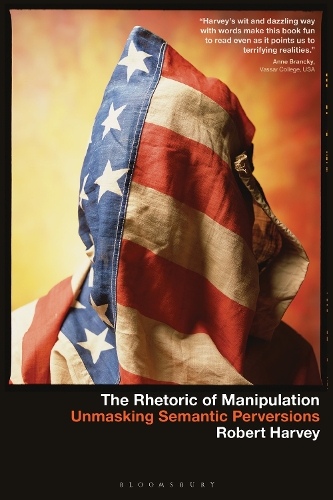
The Rhetoric of Manipulation: Unmasking Semantic Perversions
(Hardback)
Available Formats
Publishing Details
The Rhetoric of Manipulation: Unmasking Semantic Perversions
By (Author) Prof Robert Harvey
Bloomsbury Publishing USA
Bloomsbury Publishing USA
3rd April 2025
United States
Classifications
Tertiary Education
Non Fiction
Comparative literature
Philosophy of language
Semantics, discourse analysis, stylistics
418.001
Physical Properties
Hardback
216
Width 158mm, Height 236mm, Spine 18mm
460g
Description
A provocative and timely look at how language is used to manipulate the truth, how our gullibility leaves us susceptible to manipulation, and what we can do to reverse these trends. The Rhetoric of Manipulation looks behind the curtain of political and social communications in the age of fake news and the post-truth to show how the perversely engineered semantics at work today shapes culture and undermines reality. While language has always been manipulated to direct or anesthetize thought, todays semantic perversions orient opinion and subdue political action to an alarming degree. Under such conditions, we are particularly susceptible to demagoguery. Arguing that too many of us have let our critical faculties wither, Robert Harvey opens our ears and eyes to an insidious impediment to free thinking by unflinchingly examining five realms of semantic perversion: the contemporary vocabulary of war; the recently evolved language tool known as scare quotes; the terms used to peddle white supremacy; the phenomenon of so-called cancel culture; and the jargon deployed in the corporatization of higher education. The wager of The Rhetoric of Manipulation is that a frank expos of bad faith discursive practices and our accompanying gullibility can contribute to reversing the trend, remedying the current situation in view of a far more ethical immediate future, and remediating some of the damage already done.
Author Bio
Robert Harvey is Distinguished Professor Emeritus in Philosophy, Stony Brook University, USA. His publications include Sharing Common Ground: A Space for Ethics (Bloomsbury, 2017), Parmi les gisants: penser le cimetire (2024), and Witnessness: Beckett, Levi, Dante and the Foundations of Ethics (Continuum, 2010).
